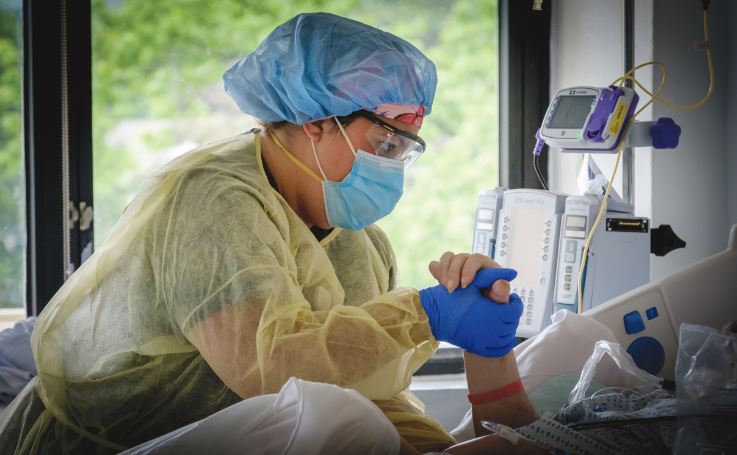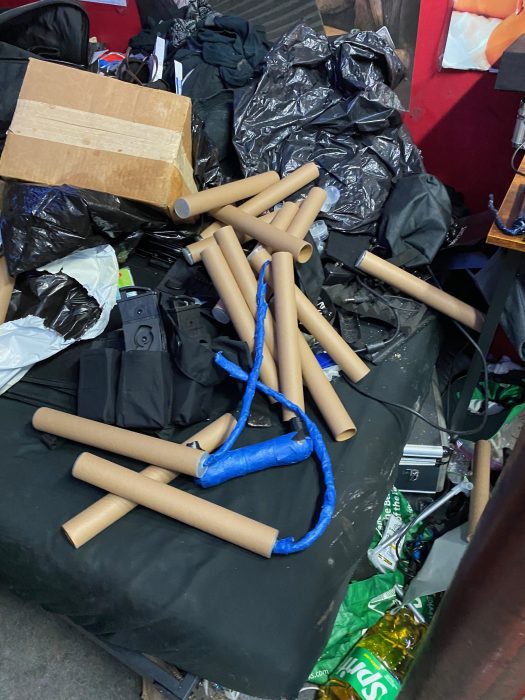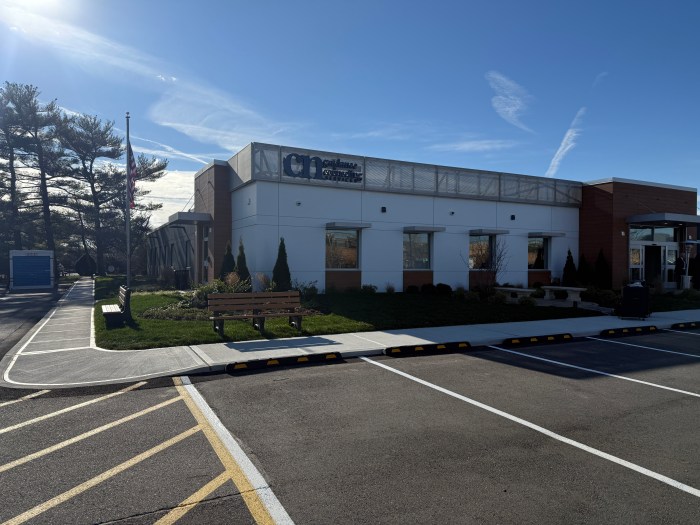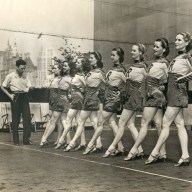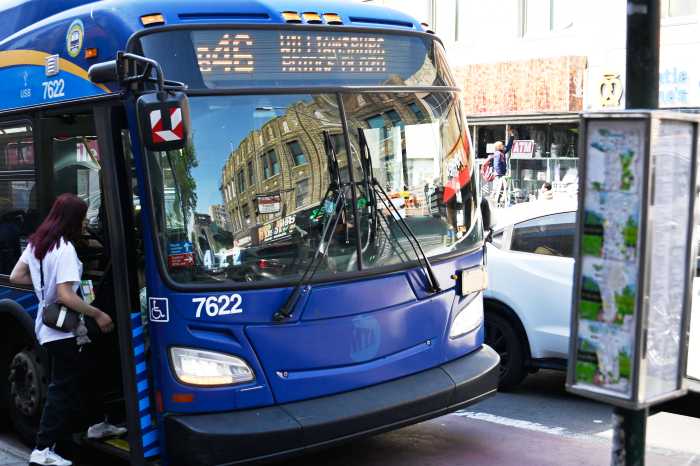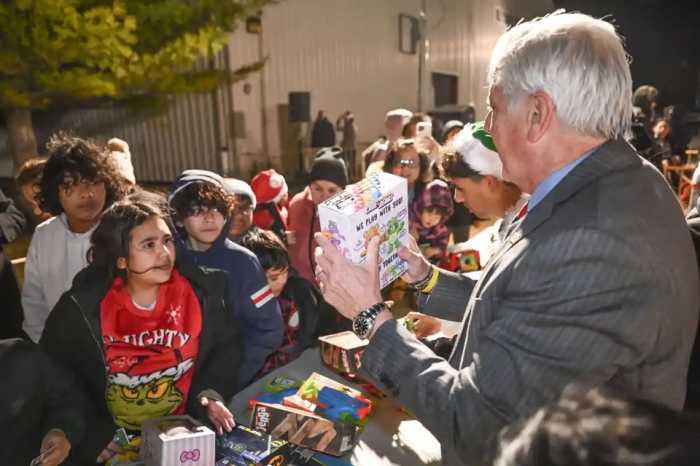Northwell CEO: Hospital system ready

(Courtesy of Northwell Health)
In his book Leading Through A Pandemic, Northwell Health CEO/President Michael Dowling detailed the frantic and frightening early weeks of the coronavirus pandemic.
The New York City metro area was the national epicenter of the spreading virus in March and April, and he stated that his system, the largest in New York State, was the epicenter of the epicenter. Northwell claims that it has treated more COVID-19 patients than any other medical system in the country.
It has also led in vaccine distribution, with, at press time, more than 7,000 of its 70,000-plus employees receiving either the Pfizer or the Moderna vaccines.
Anton Media Group recently interviewed Dowling.
Q: What’s been the effect of the second wave on your hospital system?
A: It has been relatively modest, compared to the first wave. We have had a pretty large increase in COVID patients over the last four weeks [from 80 to 790]. We’re managing it easily. It does not put major pressure on us at all. It’s important to put that figure in context because back in April, during the height, we had 3,500 COVID patients in the hospitals. If you look at it over the last month, it’s a big increase. If you look at it compared to the first wave, it’s relatively modest.
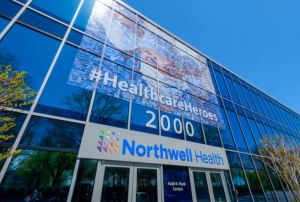
(Courtesy of Northwell Health)
Q: In the beginning, little was known about how to treat COVID-19. How about today?
A: We are in much better shape than we were back in March because then we didn’t know much about the disease and the physicians and nurses were trying to figure out what it was. What parts of the body and organs it affected. What treatments might work. So obviously, over the course of the months, we’ve learned an awful lot, and today there are much better treatments. We know what to do first, we know what to do second and to do things so that patients won’t have to go into the ICU or to be intubated as much. So yes, it’s a whole different world today medically-wise than it was back in March. There are less people [percentage-wise] in ICU and being intubated, and much less mortality today than what existed prior.
Q: There was a frantic effort to get ventilators during the early stage of the first wave. Were they as big a factor as they turned out to be?
A: Not so much at Northwell. We were challenged, but we never had major difficulties back at the beginning, [compared to] other places. Today that’s not a problem obviously. We have a stockpile of many more ventilators. We’re well equipped. And I don’t expect there
to be a shortfall, irrespective of many cases we get.
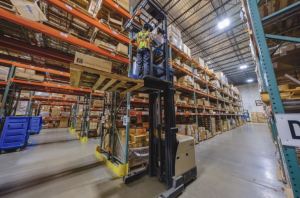
(Courtesy of Northwell Health)
Q: So the distribution warehouse you have at Bethpage is well-stocked?
A: It is completely stocked. We have adequate supplies to last a long siege there. We have plenty of masks and vents and shields. But we continue to stock it every week, because the international supply sometimes gets challenged. So you’re always looking for different ways to get supplies. Right now we don’t expect being in any difficulty.
Q: What about your staff? Is there burnout among frontline health workers?
A: The attitude is quite positive. The feedback from the workers [is that] the morale is high. There is fatigue. That’s natural. I walk around, I’m in the facilities all the time and they say to me, ‘Oh my God, I hope we won’t have to go through this again.’ But if we have to go though it again [we will]. Overall, we have a very resilient workforce. The frontline people are just terrific, the nurses and doctors and everybody, they are just wonderful. And they are ready to tackle it and beat it again. But everybody is wishing the same thing—that we wish it would be over, so that we could go back to some level of normality.
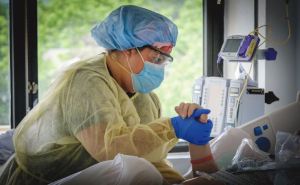
(Photo courtesy of Northwell Health)
Q: What can you tell us about Northwell’s involvement with the vaccine roll out?
A: We’ve been very involved with the state Department of Health on the vaccine. We will have a major role in organizing the vaccination in this region. We are very well prepared. We have plenty of freezers to be able to keep the vaccines at the right temperatures. The freezers at Northwell have the capacity to keep 7.7 million doses and [they] are distributed across our system.
Q: Any final thoughts?
A: The fact that we have a vaccine is great news [but] it’s going to take a long time for the roll out. And if you gave someone a shot today, they’ll have to take a second one three weeks from now. It doesn’t begin to take effect for up to six weeks. My point is this is not the time to relax. Everybody should still wear a mask and social distance. Should still wash their hands. If people relax on that because the vaccine is here, that will only prolong the COVID crisis. The crisis will last as long as the public decides not to comply. If the public complies, we will get this crisis over very quickly.




